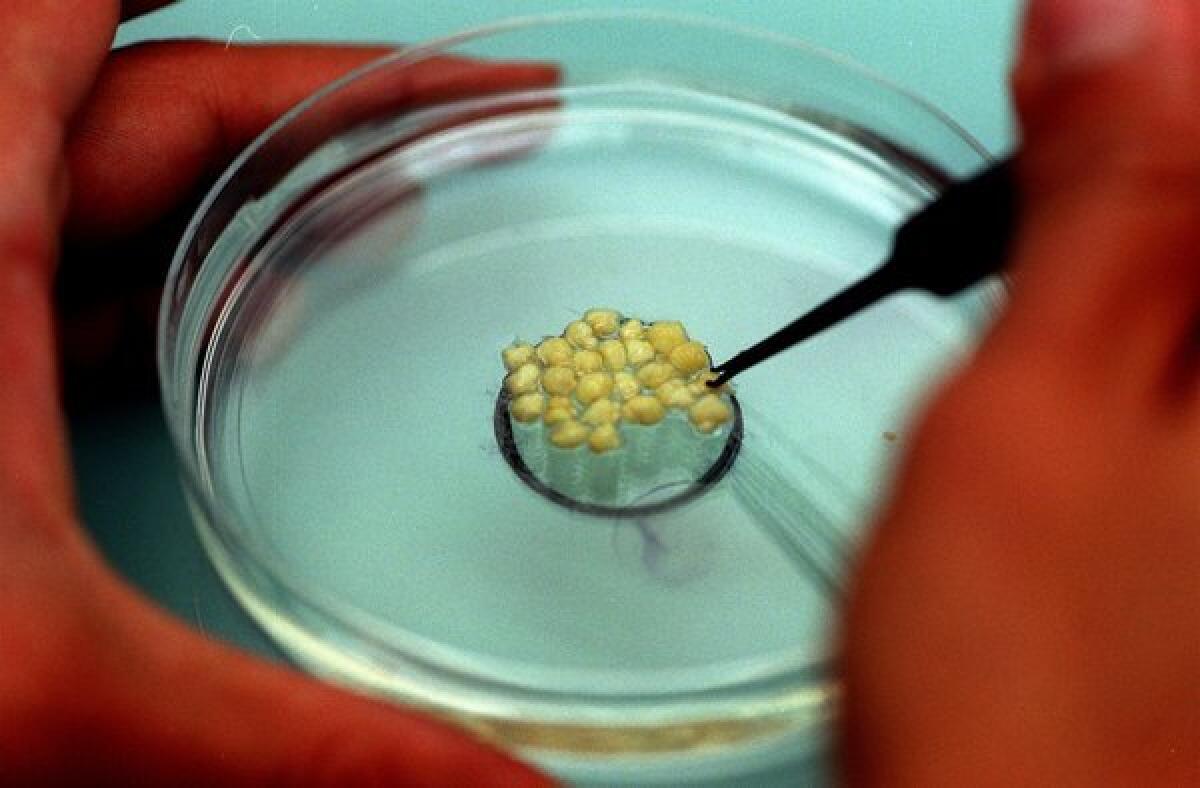Genetically modified rice as medicine

- Share via
A genetically modified strain of rice might one day be used to prevent life-threatening rotavirus infections among children in the developing world, according to researchers.
A study published Thursday in the Journal of Clinical Investigation concluded that genetically modified rice seeds helped to prevent and treat rotavirus-induced diarrhea in young lab mice.
The seeds, which were administered to mouse pups as a powder and as a water solution, remained effective for up to a year at room temperature or when boiled in water, the study said.
Rotavirus is the leading cause of diarrhea in infants and toddlers worldwide, and kills more than 600,000 youngsters each year -- the vast majority of them in low-income nations.
While traditional vaccines are used to fight rotavirus infection in the Western world, they have proved much less effective in poor nations, where vaccine refrigeration and purification can be difficult.
Researchers created the product, called MucoRice, by manipulating plant DNA so that it produced a unique type of antibody that is normally found only in llamas, camels and sharks.
These particular antibodies, or protein chains, can be engineered in the lab because they are small and hardy. They are also resistant to heat and to acidic environments like the stomach.
Lead study author Daisuke Tokuhara, an immunology researcher at the University of Tokyo, wrote with colleagues that one problem remained before the remedy could be applied to humans: determining proper dosage.
Researchers said that once that issue is resolved, the methods used to produce MucoRice might also be used to fight other diseases.
Similar experiments have been conducted with yeast, and study authors say they have produced a rice-based vaccine for cholera.




